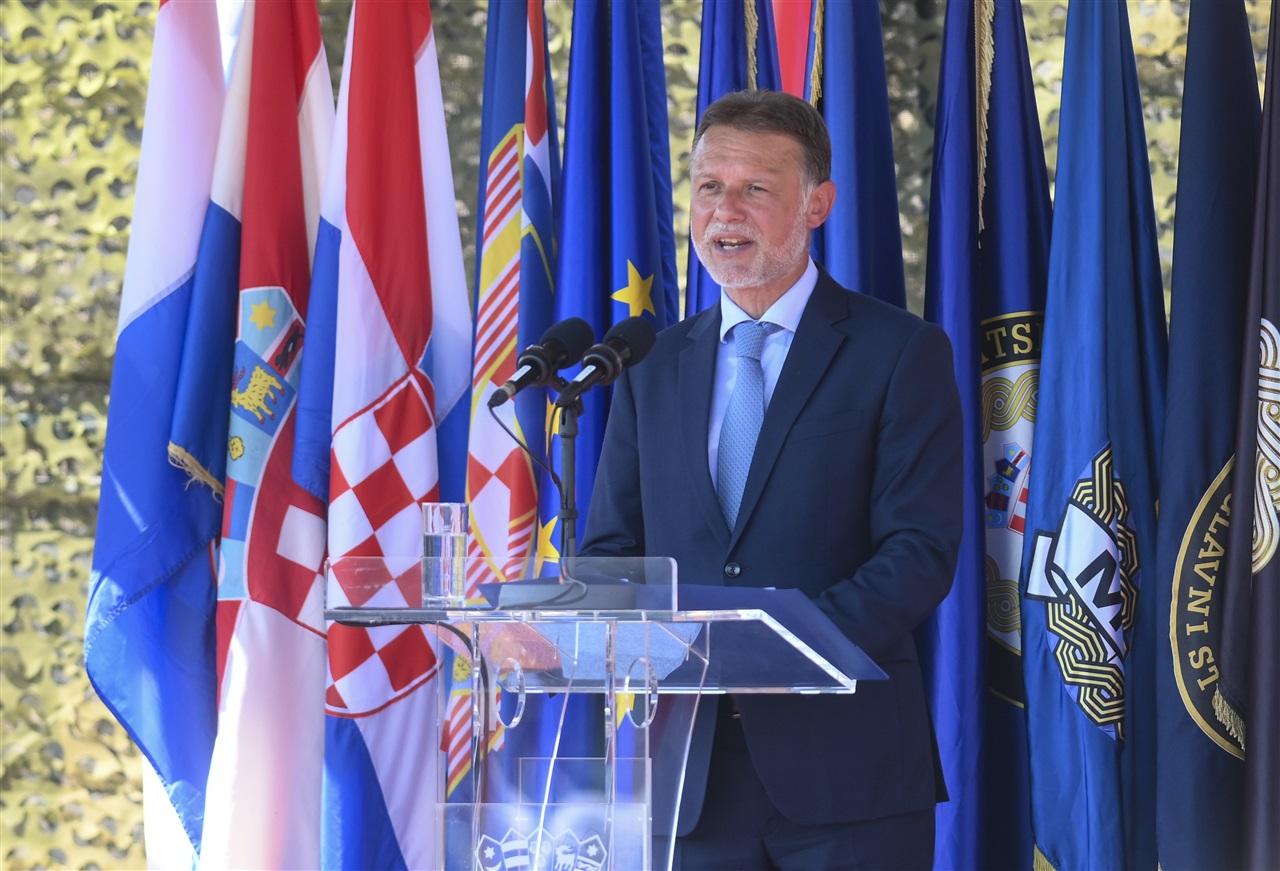
Zagreb - Parliament Speaker Gordan Jandroković said in Knin on Friday that Croatians had made great sacrifices for their freedom, values and way of life, and that commemorating Operation Storm was a way to remember and to teach younger generations about the importance of peace, democracy and human rights protection.
Speaking at a ceremony marking the 27th anniversary of Operation Storm, Victory and Homeland Thanksgiving Day and War Veterans Day, Jandroković said that it was enough just to remember the circumstances of the war, the heroism of Croatians against a bigger and more powerful enemy, the sacrifice made by the entire Croatian people, but also the absence of greater help from the international community.
Croatians are therefore especially sensitive to the suffering of the Ukrainian people which has also made them aware of the importance of the peace, democracy and human rights won. We sometimes take our freedom, values and way of life for granted. By commemorating Operation Storm, we remember and we teach the younger generations about the great sacrifice made to achieve that, said Jandroković.
Croatia proved its capabilities in 1991 and 1995, proving them now
Jandroković said that Croatia had proved its faith in itself and its capabilities in 1991 and 1995, and that it was proving them now as well, calling on citizens to be uncompromising in the fight to create better living standards, just as defenders had been.
Jandroković recalled that Operation Storm is a symbol of Croatia's victory in the Homeland War and that the liberation of Knin achieved the most important military and political goal, not only claiming back occupied areas but destroying the so-called Serb Krajina and enabling the subsequent peaceful reintegration of the Croatian Danube region.
Unfortunately, many Croatian soldiers and policemen, as well as civilians, lost their lives in that operation. Today we pay tribute to the fallen and missing fighters and express our respect and gratitude to them and their families as well as to President Franjo Tuđman, he added.
Proud of numerous achievements and achieved strategic goals
Jandroković said that 27 years after the war Croatians can be proud of the numerous achievements and strategic goals that have been achieved.
Today, Croatia is an incomparably better, more developed and more organised country. Based on the victory in the Homeland War and international recognition, we joined NATO and the EU. Our full European integration will be completed with entry into the euro and Schengen areas, which will strengthen Croatia's resilience to crises and external threats, he underscored.
Jandroković warned that the pandemic and the war in Ukraine had also greatly affected the world economy, causing energy and food price hikes due to supply problems.
Croatia is not immune to this either, although compared to many other European countries it is better off because of its own resources, he added.
Jandroković said that Pelješac Bridge, yet another symbol of Croatian strength, pride and unity, would also contribute to economic development, underscoring the link between Operation Storm and the bridge as the restoration of Croatia's constitutional and legal order in occupied areas had been a precondition for the territorial integration of southern Croatia and the rest of the country.
Developments in neighbourhood closely followed
Croatia, said Jandroković, is closely following the situation in the neighbourhood and the possibility of the crisis spilling over into Southeast Europe, and the most important issue for Croatia is the status of Croats in Bosnia and Herzegovina, as one of the three constituent peoples.
Their equality is threatened by the existing electoral law, which causes problems in the legitimate representation of Croats in government bodies. The recent protests in Sarajevo warn that there are indeed tendencies to continue outvoting them, against which we will fight with all legal, political and diplomatic means, he said.
We also take care of Croatian minority communities in other countries, said Jandroković, noting that the frequent provocations by Belgrade cast doubt on the sincerity of Serbia's wish to improve bilateral relations. In addition to the political instability in Montenegro, another cause for concern are tensions between Serbs and Albanians in the north of Kosovo, he said.
History has taught us that there is a serious potential for political instability and security threats in that area, Jandroković said, adding that that was why it was important to continue investing in Croatia's homeland security and defence capabilities.